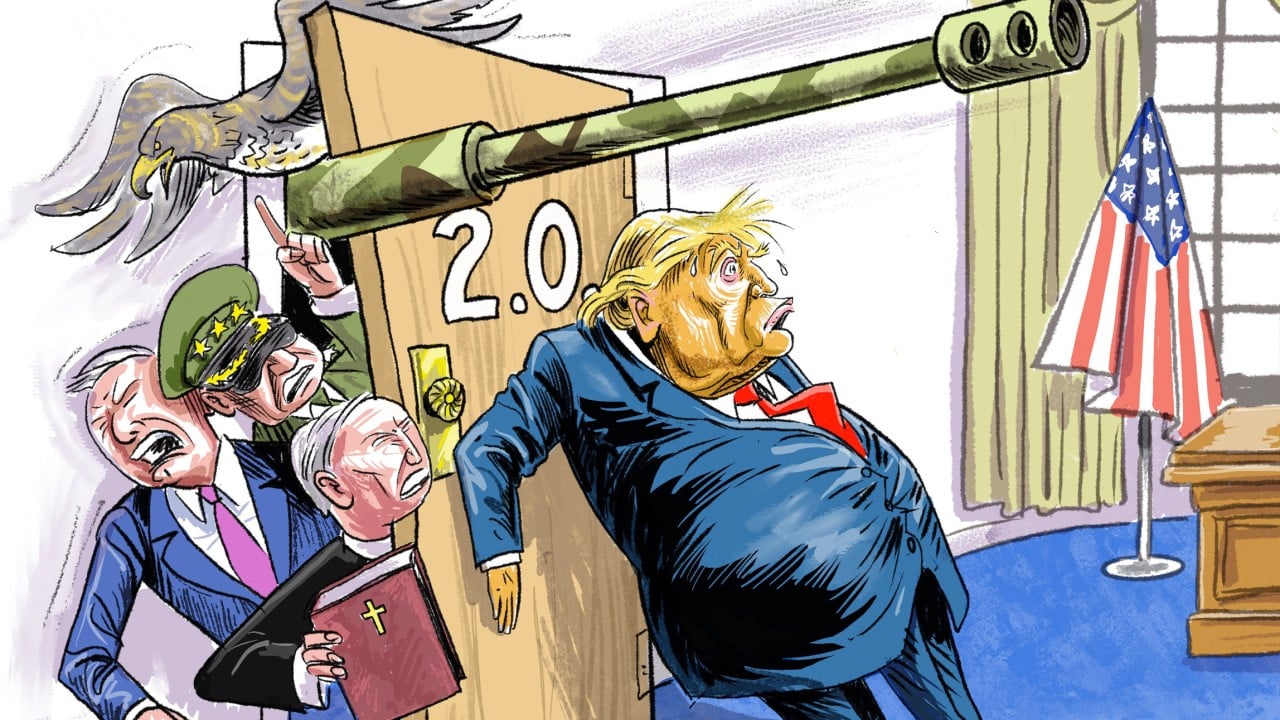For all the anticipated unpredictability and chaos, Trump 2.0 may offer the world a reprieve from ideological entanglement and military intervention. However, this respite could be short-lived, as the United States may quickly revert to its familiar pattern of ideological and military overreach.
Advertisement
US president-elect Donald Trump has threatened Brics nations with tariffs if they attempt to undermine the dominance of the US dollar. He has also issued similar threats against China, Mexico and even Canada, linking tariffs to issues like immigration and fentanyl.
While US President Joe Biden has also used tariffs, his approach has largely focused on China. In contrast, Trump’s strategy involves imposing tariffs indiscriminately, targeting both adversaries and allies alike.
Beyond his mistrust of allies, Trump’s expansive tariff threats highlight his rejection of the US’ self-assigned role as defender of a rules-based international order. Unlike Biden, who frames the current great power rivalry as a struggle between democracy and authoritarianism, Trump seems to exhibit little interest in protecting or leading the free world.
Trump’s focus remains singularly nationalistic. He wants to “Make America Great Again” by prioritising and defending core US interests, particularly through rebuilding the country’s economic dominance.
Advertisement
This could signal a crucial turning point in the ongoing reconfiguration of the Western-centric world order. Trump’s approach may allow the Global South to advance its pursuit of a more balanced economic system without becoming entangled in ideological disputes over democracy and human rights.

